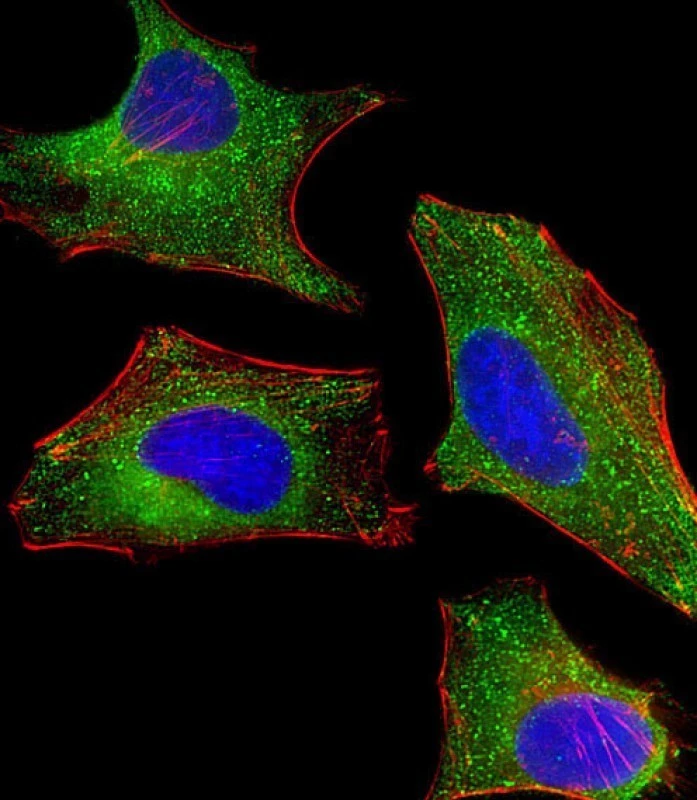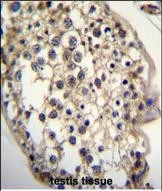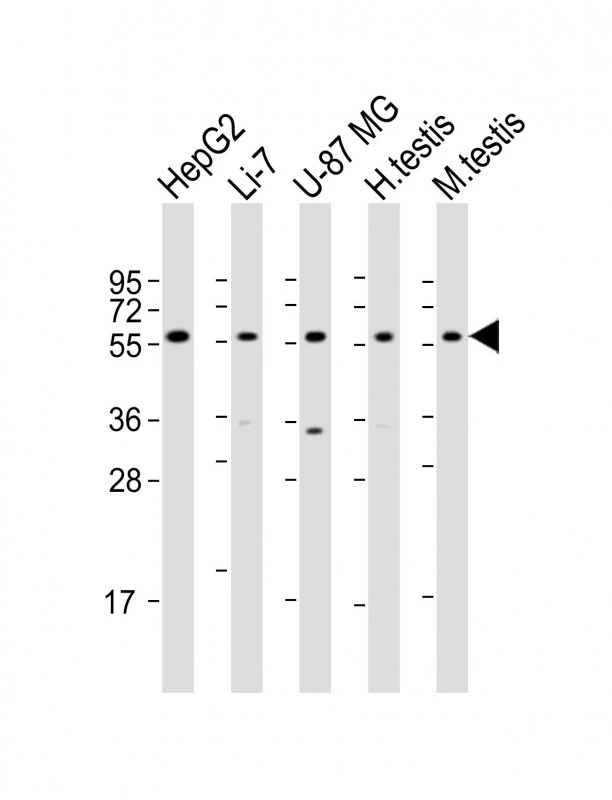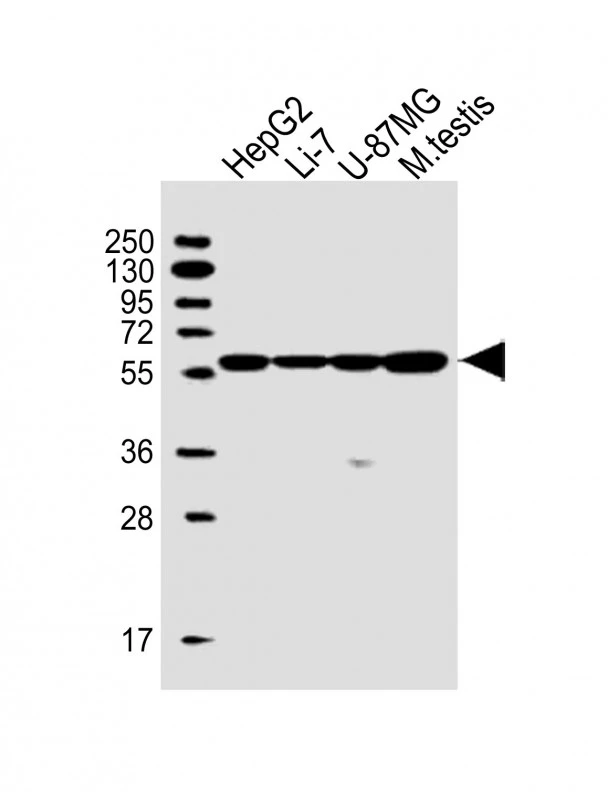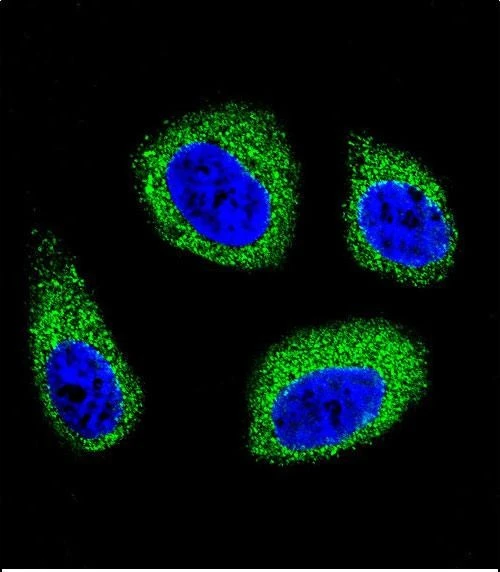
ICC/IF analysis of MCF7 cells using GTX04343 DHCR7 antibody. Green : Primary antibody Blue : DAPI
DHCR7 antibody
GTX04343
ApplicationsImmunoFluorescence, Western Blot, ImmunoCytoChemistry, ImmunoHistoChemistry, ImmunoHistoChemistry Paraffin
Product group Antibodies
ReactivityHuman, Mouse
TargetDHCR7
Overview
- SupplierGeneTex
- Product NameDHCR7 antibody
- Delivery Days Customer9
- Application Supplier NoteWB: 1:2000. ICC/IF: 1:10-1:50. IHC-P: 1:50-1:100. *Optimal dilutions/concentrations should be determined by the researcher.Not tested in other applications.
- ApplicationsImmunoFluorescence, Western Blot, ImmunoCytoChemistry, ImmunoHistoChemistry, ImmunoHistoChemistry Paraffin
- CertificationResearch Use Only
- ClonalityPolyclonal
- ConjugateUnconjugated
- Gene ID1717
- Target nameDHCR7
- Target description7-dehydrocholesterol reductase
- Target synonyms7-dehydrocholesterol reductase; 7-DHC reductase; delta-7-dehydrocholesterol reductase; delta7-sterol reductase; putative sterol reductase SR-2; SLOS; sterol delta-7-reductase; sterol reductase SR-2
- HostRabbit
- IsotypeIgG
- Protein IDQ9UBM7
- Protein Name7-dehydrocholesterol reductase
- Scientific DescriptionThis gene encodes an enzyme that removes the C(7-8) double bond in the B ring of sterols and catalyzes the conversion of 7-dehydrocholesterol to cholesterol. This gene is ubiquitously expressed and its transmembrane protein localizes to the endoplasmic reticulum membrane and nuclear outer membrane. Mutations in this gene cause Smith-Lemli-Opitz syndrome (SLOS); a syndrome that is metabolically characterized by reduced serum cholesterol levels and elevated serum 7-dehydrocholesterol levels and phenotypically characterized by cognitive disability, facial dysmorphism, syndactyly of second and third toes, and holoprosencephaly in severe cases to minimal physical abnormalities and near-normal intelligence in mild cases. Alternative splicing results in multiple transcript variants that encode the same protein.[provided by RefSeq, Aug 2009]
- ReactivityHuman, Mouse
- Storage Instruction-20°C or -80°C,2°C to 8°C
- UNSPSC12352203

